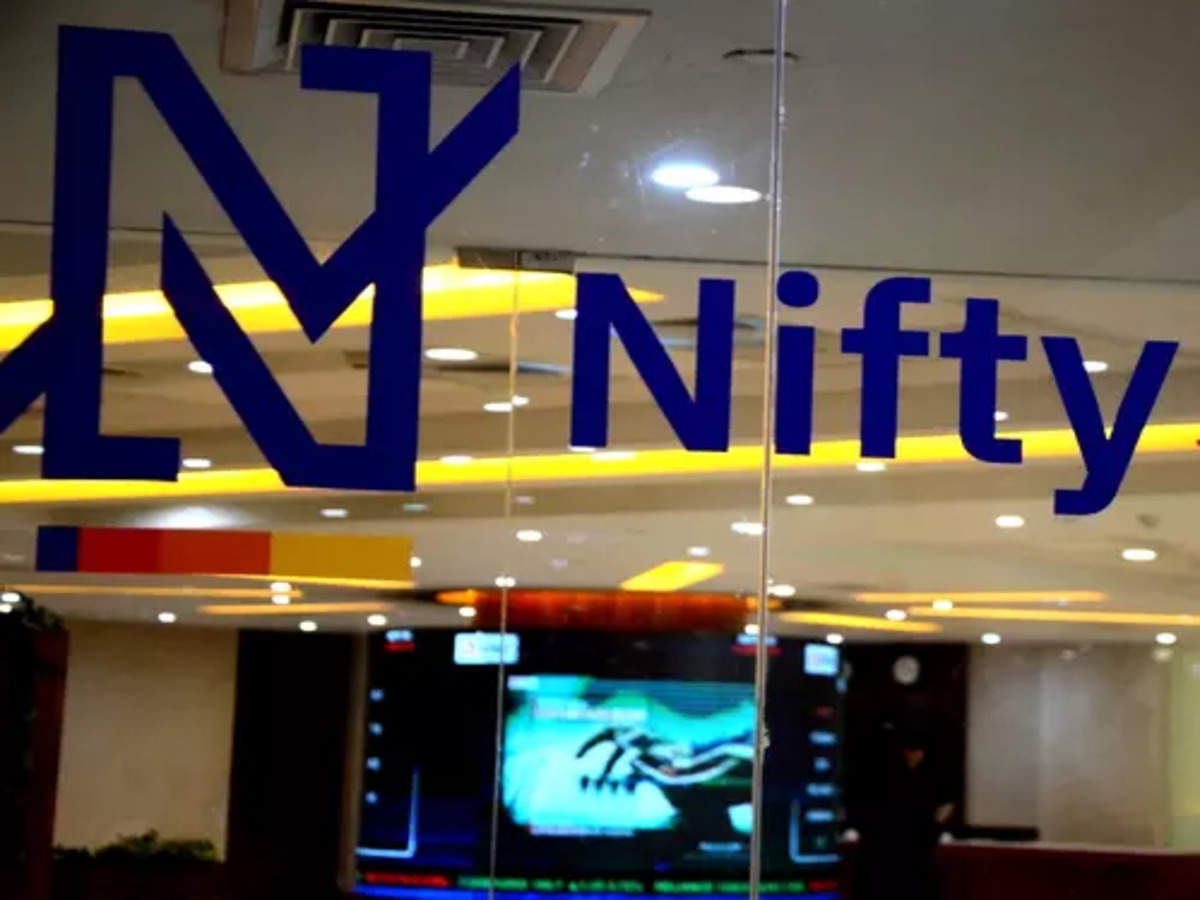Top Trending Business News & Highlights


One accord, three setbacks India's use of the EU trade pact to boil Turkey, Pakistan, and Bangladesh
The United States has also been affected by India's trade agreement with the European Union. The historic trade deal between India and the EU would not only affect Bangladesh and Pakistan but also the United States and Turkey. The agreement calls for the elimination or reduction of tariffs on more than 90% of EU goods exports to India, including hefty charges of up to 44% on machinery, 22% on chemicals, and 11% on pharmaceuticals, which will be phased down over time.Following nearly two decades of negotiations, officials announced on Tuesday that India and the European Union have achieved a free trade agreement to strengthen economic and strategic ties. Up to 2 billion people might be impacted by the agreement, which the president of the EU's executive body referred to as the "mother of all deals." The accord won't go into force for some months. The agreement between two of the largest markets in the world comes as Washington imposes high import taxes on both the EU bloc and the Asian behemoth, upsetting long-standing trade patterns and forcing major economies to look for new alliances. The FTA, which both India and the 27-nation EU refer to as "the mother of all deals," provides a "decisive boost" to the labor-intensive textile industry by improving price competitiveness and expanding market access in one of the most sophisticated consumer markets in the world, according to a note released today by the Indian Textile Ministry.
Published 29 Jan 2026 12:51 PM


India and New Zealand wrap up free trade negotiations despite persistently high US tariffs
Free trade agreement (FTA) talks between India and New Zealand came to an end on Monday amid hefty US tariffs that have unsettled investors and led to the cancellation of orders from India's biggest export market. In the context of 50% US tariffs, the New Zealand agreement, if signed, would be India's second free trade agreement (FTA) following the Oman agreement. It would also be the country's third accord this year as it works to diversify its exports.According to information made public by the government, Wellington would remove tariffs on 100% of its tariff lines for all Indian exports, while India has committed to lower tariffs on 95% of New Zealand exports. However, New Zealand's typical tariffs are among the lowest in the world—between two and three percent—and their removal could not immediately boost exports. In order to bring some symmetry to the agreement, New Zealand has "committed" to investing $20 billion in India over the next fifteen years in exchange for market access in a rapidly expanding Indian consumer market that is subject to high tariffs (over 15%). Because of the unfair tariff rates, New Zealand may benefit more from goods trade than India.In 2024–2025, bilateral trade between India and New Zealand was only $1.3 billion. "This FTA opens doors for Indian businesses in the region through well-integrated directional exports and gives our youth choices to learn, work, and grow on a global stage," stated Commerce Minister Piyush Goyal."India's strengths are expanding exports, supporting labor-intensive growth, and power services," stated Commerce Secretary Rajesh Agrawal. New Zealand's access to India's sizable and expanding economy is deeper and more reliable. These qualities are brought together by the migration of individuals, professionals, students, and skilled workers. The FTA contains provisions to address non-tariff barriers through improved regulatory cooperation, transparency, and streamlined customs, sanitary and phyto-sanitary (SPS) measures, and technical barriers to trade disciplines, according to the Commerce and Industry Ministry, in addition to tariff liberalization. According to the Ministry, "all systemic facilitations and fast-track mechanisms for imports that serve as inputs for our manufactured exports ensure that tariff concessions translate into effective and meaningful market access."
Published 22 Dec 2025 10:28 PM


What workers, brokers, and policyholders stand to gain from travelers' agreement to preserve 1,400 jobs in Canada
The Canadian business of Travelers will be acquired by Definity Financial Corp. The total value of the acquisition is $3.3 billion. Definity will become the fourth-largest property and liability insurer in Canada as a result of this transaction. Every one of Travelers Canada's 1,400 employees will continue to work there. Consumers can anticipate competitive pricing and additional options. Regulatory permission is needed for the deal. By early 2026, it should be closed.Definity Financial Corp. plans to pay $3.3 billion to acquire the Canadian operations of the US behemoth Travelers, one of the largest transactions in Canada's insurance industry in recent memory. This merger could change the competitive environment for both insurers and consumers. More than 1,400 Traveler employees across Canada will retain their employment when the two companies combine under a single brand, despite the fact that large acquisitions frequently result in job losses.Definity will move up from sixth place to become Canada's fourth-largest property and liability insurer as a result of the purchase. Its expanding presence in the insurance industry is demonstrated by the $6 billion in total yearly premiums it currently manages.
Published 28 May 2025 07:58 PM


Why did India decide to remove the "Google tax" in response to pressure from the US?
The Center intends to eliminate the 6% equalization levy (EL) it levies on digital advertisements as part of the 35 modifications to the Finance Bill, 2025, effective April 1, 2025.The Central government has suggested to eliminate the equalization levy on internet advertisements as part of revisions to the Finance Bill, 2025, a move that is anticipated to help American large technology companies and allay US worries about India being a high tariff country.As part of changes to the Finance Bill, 2025, the central government has proposed doing away with the equalization levy on online ads. This is expected to benefit big IT companies in the US and ease concerns about India being a high-tariff nation.The equalization charge, also referred to as the Google tax, will be eliminated by the Center on April 1. The clause is one of 59 changes to the Finance Bill that Finance Minister Nirmala Sitharaman made on Monday and presented to Parliament.
Published 25 Mar 2025 08:42 PM


Business
Business globally are the pillars of any economy and they contribute in huge amount to take any country ahead financially and economically and boost the country grwoth.


Paytm asks merchants to link QRs to other banks’ accounts
Following the Reserve Bank of India’s (RBI’s) strictures on Paytm Payments Bank (PPB) last week, Paytm has directed its field sales executives to migrate merchant QR codes from their existing PPB accounts to accounts with other banks. For example, Manoj Kumar, who works for a retail chain ‘More’ in Indirapuram, Ghaziabad, said that representatives of the fintech major asked them to move the store’s funds from PPB to other bank accounts before February 29. The process has started over the weekend itself and the fintech major is trying to sensitise as many merchants as possible before the deadline of February 29 to ensure that their business transactions can continue unhindered. “We have been asked to migrate as many QRs as possible to alternate bank accounts by the end of the month,” said area sales executives Fe spoke to. This comes against the backdrop of panic that has spread among a section of merchants. As per a survey of 5,000 retailers on Paytm by Kirana Club, 68% of the respondents said that they have decreased their trust on the firm since RBI’s announcement. While merchants need to shift their PPB accounts, the good news is that the QR code, soundbox or card machine will not require any physical changes, the company confirmed. “In instances, where our associate PPB operates as a back-end bank, these services can seamlessly be transitioned to other partner banks. This means that for our merchant partners, there will be no disruptions, no need to revisit existing setups, and no additional effort,” said a company spokesperson.


Setting India on the innovation journey
Innovation has often been an important aspect that distinguishes entities across the world. A business that keeps innovating survives and thrives. A country that inculcates innovation in its society doesn’t only keep the economy roaring but also empowers entrepreneurship and keeps its businesses growing. The developed block of countries and their businesses understood this advantage and continued their innovation journey by attracting the best global minds to their geographies. India, in the past few years, has started this journey, and the trajectory of becoming a $10 trillion economy and a developed nation hinges significantly on its transformation to a scientifically advanced country and a global leader in innovation. Government initiatives aimed at fostering creativity in education and incentivising careers in science underscore India’s steadfast commitment towards nurturing its innovation ecosystem. India’s ancient history is full of innovators and researchers who were constantly contributing to research and innovation that has withstood the test of time. India’s remarkable rise in the Global Innovation Index (GII), soaring to the 40th position out of 132 countries in 2023, reflects its resolute dedication to promoting innovation. The GII, complemented by the India Innovation Index published by Niti Aayog and the Institute for Competitiveness, also empowers states to measure their innovation-driven progress against global benchmarks. In a landmark move, Union finance minister Nirmala Sitharaman outlined a bold vision for India’s technological future as she presented the interim Budget 2024. Central to her announcement was the allocation of a substantial Rs 1 trillion corpus to bolster technology research, signalling a transformative leap towards fostering innovation and self-reliance. While the specifics are awaited, the announcement heralds a new era for India’s tech landscape, highlighting the pivotal role of innovation as the cornerstone of national development.


Morgan Stanley sees opportunity, buys shares worth ₹244 crore
Morgan Stanley on Friday bought shares worth ₹244 crore in Paytm's parent company One97 Communications, representing a 0.8 per cent stake Financial services giant Morgan Stanley on Friday made an investment in Paytm's parent company, One97 Communications, by acquiring shares worth ₹244 crore through an open market transaction.Morgan Stanley, via its affiliate Morgan Stanley Asia (Singapore) Pte - ODI, purchased 50 lakh shares on the National Stock Exchange (NSE), representing a 0.8 per cent stake in Paytm. The average price per share was ₹487.20, resulting in a total deal size of ₹243.60 crore. However, details about the sellers remain undisclosed, PTI reported.This comes after the banking sector regulator has found potential violations, including the misuse of customer documentation rules and non-disclosure of material transactions. Paytm shares price faced another 20 per cent decline on the NSE. This adds to a total of 36 per cent drop in the share price in just 2 days after the Reserve Bank of India (RBI) directed Paytm Payments Bank Ltd (PPBL), an associate of Paytm, to cease accepting deposits or top-ups in various accounts, wallets, and instruments from March 1. Morgan Stanley, via its affiliate Morgan Stanley Asia (Singapore) Pte - ODI, purchased 50 lakh shares on the National Stock Exchange (NSE), representing a 0.8 per cent stake in Paytm. The average price per share was ₹487.20, resulting in a total deal size of ₹243.60 crore. However, details about the sellers remain undisclosed, PTI reported.In related news, there are reports that the RBI is contemplating revoking the license of Paytm Payments Bank as early as next month.


Orios Venture Partners sells nearly 3% stake in Country Delight for Rs 225 crore
Orios Venture Partners has made a partial exit from direct-to-consumer (D2C) fresh food brand Country Delight for around Rs 225 crore. People familiar with the matter said the early-stage venture capital firm has sold about a 3% stake in Country Delight to Temasek-backed asset management group Seviora. Orios had invested Rs 15 crore in Country Delight from its Fund-I, of which the first cheque of Rs 3 crore was infused in 2017. The firm had subsequently invested additional sums in Country Delight through its later funds.Across all its investments in the D2C company, Orios held 21-22% stake in Country Delight prior to the partial exit.On January 5, ET reported that the Gurugram-based company raised around $20 million (around Rs 164 crore) in a funding round led by one of its existing investors, Singapore’s sovereign fund Temasek. Another existing backer, Venturi Partners, also participated, in addition to Seviora, which invested through its agriculture and food-focused investment vehicle Seviora T3F Fund. The round valued Country Delight at around $820 million. Orios launched Fund-I in 2014, with a final close of Rs 300 crore in 2015. In January, the Mumbai-based investment firm announced that it had returned the initial corpus to its limited partners, or sponsors of the fund. Among the various sectors, Fund-I allocated 27% of its corpus to ecommerce marketplaces, followed by D2C at 18%, and healthtech at 14%. Key portfolio companies that emerged from the fund include Country Delight, PharmEasy, Intelligence Node, and Zostel. Orios also counts BatterySmart, Vedantu, Ixigo, Mobikwik and CarDekho among its portfolio companies. It had also backed beleaguered car repair startup GoMechanic but had to eventually write off the investment after GoMechanic’s founders admitted to financial wrongdoing. The Rehan Yar Khan-led investment firm also saw two of its managing partners Anup Jain and Rajeev Suri depart in September 2023.


US Economy Today: Federal Reserve Officials Beat the Confidence Drum
Welcome to Investopedia's economics live blog, where we'll explain what the day's news says about the state of the U.S. economy and how that's likely to affect your finances. Here we will compile data releases, economic reports, quotes from expert sources and anything else that helps explain economic issues and why they matter to you. Today, another batch of Federal Reserve officials will offer their opinions on the Open Market Committee's path forward.Boston Fed President Susan Collins was another in the line of Federal Reserve officials who broadly said they needed more “confidence” that inflation is sustainably declining before cutting interest rates. She did, however, lay out a few fundamental indicators she is watching. In remarks to the Boston Economic Club, Collins said housing inflation was taking longer to come down than other categories and she wants to see more progress there. Consumers’ inflation expectations needed to remain “well anchored." Recent consumer confidence surveys have jumped as people start to feel better about inflation and the economy. Collins also said she is closely monitoring wages, pointing to data from Boston Fed economists. The data suggests “there is room for wages to catch up and continue increasing at a healthy pace for some time without necessarily spurring inflationary pressures” due to gains in productivity. However, she was looking to see declines in labor demand to help bring better balance. Employers continued to add more jobs than anticipated in January, while wages also surged.Inflation should continue to decline, so long as consumers begin to put away their wallets, Fed Governor Adriana Kugler told the Brookings Institute Wednesday.


Been Moving Mountains": The Founder of BYJU Sends Staff an Email Concerning Delayed Salary
Despite rumors that the ed-tech company would postpone paying its employees for the month, BYJU's has now paid their salaries for January. Byju Raveendran, the founder, thanked his staff in an email, saying he had to "move mountains" in order to make the payroll. Once valued at $22 billion, the company was thrown into a severe financial crisis when it was founded in 2011 and began to face lawsuits from lenders and accusations of violating the Foreign Exchange Management Act (FEMA). Despite having been told they might not get paid until Monday, Mr. Raveendran told his staff that the January salaries have already been paid.I am aware that you were informed that your pay would be received by Monday. Many of you wrote to me saying that you understood what I was going through and that you wouldn't mind waiting even longer. However, you were not required to wait until Monday," he stated. Payroll expenses account for almost ₹ 70 crore of BYJU's monthly expenditure, as reported by Moneycontrol. "I have been moving mountains for months to make payroll, and this time, the struggle was even bigger to ensure that you receive what you rightfully deserve," he stated. He also expressed gratitude to his staff members who persevered and kept working for the business in spite of difficulties.Everyone is a little worn out from this battle, everyone has had to make sacrifices, and everyone has struggled with decisions they never wanted to make, but nobody has given up. This is a result of our pride in the creations we have made. We know we've had enough when we have self-respect," Mr. Raveendran declared. Lenders from abroad have filed lawsuits against BYJU due to its missed payment deadlines. Even more, its Alpha unit filed for bankruptcy following the lenders' filing of an insolvency petition in a US court. In addition, the Enforcement Directorate (ED) is conducting raids due to claims of FEMA violations, which has caused multiple resignations from the organization. You can only listen to the newest music on JioSaavn.com. At $250 million, its most recent valuation is less than its peak worth Earlier this month, BYJU's resisted a resolution put forth by its shareholders to remove its founders from the board, arguing that the investors lacked the ability to cast votes to alter the company's top management.


Tax buoyancy cannot continue year after year, says DEA secy Ajay Seth
A day after the Interim Budget was tabled in the Parliament, Economic Affairs Secretary Ajay Seth spoke to Ruchika Chitravanshi and Asit Ranjan Mishra on the government’s thinking behind the major budget projections and the fiscal math. Edited excerpts. I have treated FY23-24 as the first year where all segments are doing well. In 2022-23, there were still a few areas that were coming out of the impact of the pandemic. In FY23-24, the profitability of the corporate sector and the general economy, which is reflected more through the GST numbers, are doing well. We expect buoyancy to continue next year, but it cannot continue year after year. It (the revenue projection) arises out of all sectors doing well and the formalisation of the economy helps in making sure the tax domain gets widened. The major non-tax revenues include disinvestment, dividends from banks, PSUs, RBI, and spectrum charges. They account for almost 80-85 per cent of the non-tax revenue. We have an interaction with each of the stakeholders and that is how we arrive at the number. We think it is a reasonable number. You have to look at it from what base we are coming from. A large portion is on fertiliser prices. These are the estimates based on the current prices as well as the outlook for the next year. It is not as if fertiliser consumption is coming down, it is a question of the price. Prices had shot up during the post-pandemic period. It is a combination that has been put through. Instead of looking at the disinvestment and monetisation as a separate basket, those have been looked at together and that is how a combined number has been indicated in the budget document. Monetisation has two kinds of flows -- one which comes to the PSU or the agencies such as NHAI and they plough back to their future investment. There will be certain monetisation that will come through the sale of securities, and physical assets. There have been years where monetisation proceeds have been more than estimated and vice versa might have been for disinvestment. We felt it was better to have a combined number.


Will Elon Musk Get What He Wants If Tesla Moves To Texas? Analysts State
Due to the absence of precedent and distinct regulations in Texas' business courts, Elon Musk's proposal to relocate Tesla from Delaware may not grant the CEO of the electric carmaker the extra flexibility he seeks, according to legal experts. Following a crushing defeat this week in Delaware's Chancery Court, which nullified his $56 billion compensation package, Musk declared on social media on Thursday that Tesla would "move immediately to hold a shareholder vote to transfer state of incorporation to Texas."Later on Thursday, Musk said, "Change your state of incorporation out of Delaware before they lock the doors." If Musk's corporate relocation plan is approved by the board of directors at Tesla and the shareholders approve it as well, the electric vehicle manufacturer would move its incorporation from Delaware, the state in the United States with the largest number of registered companies because of its two-century-old corporate legal system. Due to this certainty, Delaware has long been favored by businesses; however, Musk may upend this by moving Tesla and enticing others to follow.It takes time and volume to build up a body of case law that makes the courts a trustworthy venue for business disputes, which is why Delaware has a clear advantage, according to Edwards. A number of states, including Texas, have passed "constituency statutes," which guarantee business executives' ability to take into account interests other than maximizing profits for stockholders. He said that Delaware is not one of them.


Despite Paytms attempts to soothe investor concerns about a negative impact on its business
In spite of Paytm's efforts to allay investor concerns about a blow to its business, the company's shares saw a 20% decline on Friday as a result of the central bank's crackdown on its payments bank. For the second day in a row, Paytm shares were trading at 487 rupees, the lowest point in more than a year, at the bottom of a trading band set by the exchange. The company's shares have now dropped 36% this week. Paytm CEO Vijay Shekhar Sharma tweeted on Friday, "Your favourite app is working, will keep working beyond 29 February as usual," in an effort to ease app users' anxieties."For every challenge, there is a solution and we are sincerely committed to serve our nation in full compliance," Sharma continued. Concerns about earnings from the company's primary payments division were raised when the Reserve Bank of India (RBI) on Wednesday ordered Paytm Payments Bank to cease taking new deposits in its accounts or well-known digital wallets as of March 1.


Infra focus, fiscal prudence are positives for street
The interim Budget on Thursday maintained the government’s focus on infrastructure development while surprising the street with its fiscal deficit target. In an election year, the government resisted the temptation to announce populist measures. For Financial Year 2024-25 (FY25), capital expenditure (capex) was hiked 17 per cent to Rs 11.1 trillion. In FY24, capex was hiked by 33 per cent. The fourth straight hike is expected to take the capex to gross domestic product (GDP) ratio to 3.4 per cent in FY25 compared to 3.2 per cent in FY24. ICICI Direct Research said capex growth is on a high base of the last four years and has tripled in that period, resulting in a multiplier impact on economic growth and the moderation in the interim Budget was on expected lines. The key takeaway was the aggressive fiscal deficit target of 5.1 per cent for FY25 compared to the market expectation of 5.5 per cent. The government said it is on course to hit the sub-4.5 per cent number for the metric by FY26. Its expectations are based on higher tax collections, dividends from the Reserve Bank of India and public sector companies, and control on expenditure. With the fiscal deficit in check, the government’s market borrowing in FY25 is expected to be Rs 14.1 trillion compared to Rs 15.4 trillion in FY24. HSBC said small savings have played an important role in funding the fiscal deficit. The savings funded 27 per cent of the fiscal deficit in FY24 compared to 23 per cent in FY23. However, India Ratings and Research said the system-wide capex growth hinges on continued recovery of state spending (up 42 per cent year-on-year in the first eight months of FY24) and hope of acceleration in tentative recovery in private sector capex. The states account for two-thirds of overall capex. In a flat market on Thursday, the Nifty PSU Bank Index was the biggest gainer among sectoral indices by jumping 3.1 per cent. Among other sectors, sentiment was also positive in the logistics space as the three largest listed companies by market capitalisation registered gains between 1-5 per cent. The interim Budget announced a new housing scheme for the middle class as the ongoing Pradhan Mantri Awas Yojana (Grameen) aims to build crores of new homes. The proposals for housing and infrastructure development are expected to boost the real estate and building materials sectors. However, the Nifty Realty and the building materials companies ended in the red. The interim Budget did not have major measures in the consumer space. Consumption is weak, especially in rural India, as indicated by corporate earnings for the last few quarters. The Budget doesn’t provide any near-term solution for quick revival for consumption, said Motilal Oswal Financial Services.


India’s Crypto Industry Misses Mention in FM’s Budget 2024 Speech, No Change in Taxes
"Social media platforms have been inundated with posts from the Indian crypto and Web3 industries pleading with the government to ""ReduceCryptoTax"" for days now. In the interim budget speech she gave to the parliament on Thursday, February 1, India Finance Minister Nirmala Sitharaman did not even bring up the cryptocurrency industry, despite the outcry. Members of the industry feel a little ignored and let down by this. The business community does not, however, give up hope that the elected government's finalized budget may undergo some modifications following the conclusion of India's general elections later this year. During her hour-long speech, Sitharaman stated that no tax changes are being implemented at this time. ""We believe crypto and virtual digital assets can be a force multiplier in achieving 'Viksit Bharat' by empowering individuals at the grassroots level,"" WazirX vice president Rajagopal Menon said in response to the development. Given that India is at a turning point in the cryptocurrency revolution, provisions for long-term financing of domestic crypto projects will benefit both digital public infrastructure and the PM's goal for ""Anusandhan"" (research). We anticipate that these developments will be taken into consideration by the government in addition to our current requests for a reduction of TDS rates to 0.01 percent and an offset of trader losses." The hashtag #ReduceCryptoTax has been trending on X in India since last week, and thousands of posts have called for an update to the country's crypto tax laws. India implemented a 30 percent tax on all cryptocurrency profits in July 2022, in addition to imposing a one percent tax deduction on each cryptocurrency transaction. Industry insiders claim that this tax structure has caused a decline in cryptocurrency-related activity in India, which has resulted in the migration of Web3 talent and businesses to countries with more hospitable tax regimes. Numerous cryptocurrency companies in India have even declared layoffs, citing a decline in users and inquiries about the industry.The three demands from the cryptocurrency community were anticipated to be addressed in this budget: carrying forward losses, similar to stock gains, and flexible tax slabs with a TDS reduction from one percent to 0.01 percent on each transaction.However, these recommendations from the cryptocurrency industry have not been taken into consideration for this interim budget. The finance minister did make an announcement about a plan to provide a 50-year interest-free loan of Rs. 1 lakh crore to assist India's youth, which is seen favorably by the crypto community.


In November, venture capital funding for Indian businesses hits a six-year low.
In January 2024 and 2023, there were just three late-stage deals, the same as in January 2023. However, the amount of capital fell by 41% to $31 million. It was $52 million in January 2023.Anand Lunia, founding partner of IndiaQuotient, stated in a previous interview with Moneycontrol that there is a discernible decline in series A, B, and subsequent agreements, which has led to a greater concentration at the seed level.The total amount invested in Indian startups is now negative due to the sharp decline in late-stage capital. According to Venture Intelligence statistics, new-age IT businesses reported only $366 million in 53 agreements in January, a decrease of almost 64% from $1,027 million in 48 deals in December. Additionally, the month saw a sharp drop in comparison to the same period last year, down 54% from $792 million in 70 agreements.November marked a six-year low for venture capital (VC) funding to Indian businesses, and the protracted funding winter shows little signs of abating.According to data released by Venture Intelligence on December 1, Indian entrepreneurs closed just $223 million in 35 agreements in November, a decrease of almost 66 percent from $655 million in 52 deals the month before. The only occasion when Indian entrepreneurs saw a decline in investment occurred in January 2017, when there were 43 deals totaling $207 million.Because of the holiday season and the approaching end of the year, November and December often receive less financing. VCs are focusing largely on finishing pending investments rather than taking on new ones. The numbers are declining because of this and investor concern, according to Mitesh Shah, founder of venture capital firm IPV, who spoke with Moneycontrol.Shah clarified that although investors are willing to assess companies, they are now more discerning and are not solely focused on profits. He stated, "People are now considering all of their options before committing to anything." Additionally, the month saw a sharp drop in comparison to November 2022 of $1.02 billion in 62 trades, a 78.2 percent year-over-year fall.Startups changing course The effect is noticeable in the total amount of funds for 2023. The amount of capital received by Indian companies up to November was $7.05 billion, a 71% decrease from $24.36 billion in 2022.


Interim Budget 2024: Expectations for Indirect Taxation
Given that there is a high priority on increasing participation in global value chains, the expectations from this budget from an Indirect Tax standpoint could be around improving the global trade ecosystem, simplification and streamlining of compliance framework, policy measures to cultivate local competencies and exports as well as focus on simplification and certainty in tax policy. The 2024 Interim Budget is set to be presented in Parliament on February 1. Given that there is a high priority on increasing participation in global value chains, the expectations from this budget from an Indirect Tax standpoint could be around improving the global trade ecosystem, simplification and streamlining of compliance framework, policy measures to cultivate local competencies and exports as well as focus on simplification and certainty in tax policy. The Manufacturing and Other Operations in Warehouse Regulations (MOOWR) Scheme has been conceived to encourage domestic manufacturing to participate in the global value chain by offering duty deferment and location flexibility. The changes made through the Finance Act, 2023, which requires payment of Integrated Goods and Services Tax (IGST) and Compensation cess on goods stored in a warehouse for manufacturing, seem to have been an intent to restrict the benefit to customs duty other than IGST and Compensation cess. This change allows for sector-specific carve-outs and at present such a carve-out has been made for electronics and semiconductor manufacturing sectors. Such change in the scheme seems to have raised uncertainty for manufacturers with expansion plans and importing capital goods. To bolster manufacturing and to support export competitiveness, this uncertainty may be addressed in this Interim Budget. Given the intent of the GST system to have a seamless flow of credits across the value chain, degree of compliance by way of e-invoicing, and buoyant tax collections, the fragments of the erstwhile regime with respect to credit restrictions may be reconsidered. Reducing credit barriers, particularly those pertaining to infrastructure, employee-related expenditures, and construction or immovable property could perhaps benefit businesses by unlocking working capital. Like some of the erstwhile state Value Added Tax (VAT) legislations, a mechanism for allowing refund of unutilised GST input tax credits balance at the conclusion of each fiscal year could be explored, regardless of exports or refund towards inverted duty structure.


Stock Market Today: Sensex, Nifty edge higher as Budget session commences
Indian indices inched higher as trading session progressed on Wednesday ahead of the FY 2024 interim budget to be presented on February 1. Investors will keenly observe the announcements despite the interim nature of the budget. Share Market Updates: Indian benchmark indices opened near flatline on Wednesday’s trading session amid cues from the global market. BSE Sensex opened 58.60 points, or 0.08 per cent at 71,081.30 while Nifty opened 34.80 points, or 0.16 per cent at 21,487.30. However, the indices inched higher as trading session progressed on Wednesday ahead of the FY 2024 interim budget to be presented on February 1. Investors will keenly observe the announcements despite the interim nature of the budget. Observers will keep an eye on any proposals on taxation on investment in capital markets. Commentators say sentiments are running positive ahead of the anticipated budget. Voltas, M&M Financials and L&T Finance remained among top gainers and Nifty 50 Larsen, Indus Towers, Astral Ltd tanked the most. Nifty Bank traded over 1.5 per cent higher. International oil prices climbed on higher global economic forecasts and sustained tension between the US and oil rich Iran. Brent Oil Futures lost 0.22 points, or 0.27 per cent at $82.31 a barrel while WTI futures traded 0.17 points, or 0.22 per cent at $77.65 per barrel. Indian Rupee closed today’s trade 8 paisa stronger at 83.11 against the American currency. Indian currency opened flat at $83.11 vs Tuesday’s close. The US dollar index gained 0.20 points, or 0.20 per cent 103.42. Asian markets remain mixed after China posted below the expectation industrial results. Chinese manufacturing contracted in January for a fourth straight month, reflecting weak demand and a faltering recovery. Nikkei gained 0.61 per cent and Kospi fell 0.07 per cent. NASDAQ 100 futures slid 0.8 per cent after several tech companies posted Q4 results that fell below the expectations of market analysts. Shares of tech giant Alphabet tanked by 5 per cent while Apple shares fell nearly 1 per cent. Dow Jones Industrial Average ended with minor gains with 133.86 points, or 0.36 per cent at 48,467.31 while S&P 500 ended 2.96 points, or 4,924.97 lower.


US Judge Dismisses Elon Musks Salary, Asking "Was the Worlds Richest Person Overpaid?"
A Delaware judge asked a straightforward question at the outset of her legal opinion, rejecting Elon Musk's $55 billion Tesla pay deal: "Was the richest person in the world overpaid?" Her response was unambiguous after nearly a year of thought and 200 pages of legal justification: yes. Indeed, he was. Chief Judge Kathaleen St. J. McCormick of the Chancery Court agreed with a Tesla investor on Tuesday. The investor had argued that Musk's 2018 pay package did not clearly outline his requirements for earning the money and that the board was riddled with conflicts of interest when it approved the agreement to keep Musk as CEO. Musk has been the richest person in the world for the last two years, but the decision could push him down to third place. The judge's ruling also coincides with Musk's recent statements to analysts that he wants to increase his ownership of the electric vehicle manufacturer in order to keep control of the business, prevent removal, and pursue further advancements in artificial intelligence. The judge's landmark ruling can be distilled into the following points:However, McCormick pointed out, "Musk does not linger in the traditional comforts of everyday billionaires. For instance, he just has one house." She then referred to his deposition, in which he stated, "I attempted to list it on Airbnb, but Hillsborough has banned Airbnb." They are really stiff." Board Members in Conflict Given that the board members on the compensation committee tasked with negotiating on the company's behalf were "beholden" to the CEO, the judge deemed Tesla's process of approving the pay package to be "deeply flawed". The judge stated that those people included former General Counsel Todd Maron, who had represented Musk during his divorce; Antonio Gracias, who had been Musk's friend for twenty years and frequently accompanied him on vacations; and Ira Ehrenpreis, the chair of the compensation committee, who had known Musk for fifteen years."It is unsurprising that there was no meaningful negotiation over any of the terms of the plan," said McCormick. The judge declared, "They did not take a position 'on the other side' of Musk." "It was a joint endeavor. Negotiations based on positions were absent. Up until he unilaterally dropped his request six months later, Musk provided the terms that the board and compensation committee took into consideration when determining the size and structure of the grant. Musk didn't appear to give a damn about the other information. They were resolved."


Before polls, stocks are expected to benefit from the governments interim budget.
As the government of Prime Minister Narendra Modi prepares to unveil its final budget before the national elections, traders are keeping a close eye on companies that are involved in road, port, and airport construction. In her budget speech on Thursday, Finance Minister Nirmala Sitharaman is expected to highlight shares associated with state-owned companies and rural spending, as policymakers look for ways to increase demand in the vast rural hinterland.Building infrastructure has become a key component of PM Modi's economic strategy, enabling India to grow faster than any other major economy. The nation's stock markets, which have increased in all but one year since PM Modi took office in 2014, began to show signs of optimism. This month, foreign investors withdrew more than $2.6 billion from local equities, indicating a slight decrease in enthusiasm. Spending on Infrastructure One of the government's main priorities is the construction of power plants, highways, and tunnels; during the past three years, capital spending has more than doubled.The main winners of this policy push have been the shares of industrial and capital goods companies, ranging from billionaire Gautam Adani's conglomerate to engineering behemoth Larsen & Toubro. Over the past year, BSE Ltd.'s sectoral gauges of capital goods and industrial firms have increased by over 70%, outpacing the benchmark index's 17% gain. Vinit Sambre, head of equities at DSP Mutual Fund, said over the phone, "A lot of the market performance has come from the capex cycle; equity investors would want to see that momentum continue." "Any guidance on the capex path will be closely watched."


Zee-Sony merger: NCLT issues notice to Sony to file reply in three weeks
The National Company Law Tribunal (NCLT) on Tuesday accepted a petition by a Zee Entertainment shareholder seeking the merger of its Indian entity with Sony, which was called off last week despite regulatory approvals.The Mumbai-bench of NCLT issued a notice on a petition moved by Mad Men Film Ventures, a shareholder of Zee Entertainment Enterprises (ZEEL), directing Sony Pictures Network India, now known as Culver Max, to file a reply within three weeks.Mad Men Film Ventures on Tuesday filed the petition requesting both ZEEL and Sony to implement the merger as it was approved by the NCLT in August 2023.The tribunal did not agree to the arguments made by the counsel stating that the approval by NCLT was conditional and depended on various conditions, which may be fulfilled or waived off in writing. Last week, the Sony Group Corp called off the merger with ZEEL following a stalemate over who will lead the merged entity.NCLT has kept the next date of hearing on this matter on March 12.The deal stipulated that the merger was to be completed before December 21, 2023, including regulatory and other approvals with a grace period of one month to complete the transaction.This merger could have otherwise created a $ 10 billion media enterprise in the country. The National Company Law Tribunal (NCLT), on Tuesday, accepted a petition filed by a shareholder of Zee Entertainment seeking the merger of Zee Entertainment's Indian entity with Sony, a move that had been called off last week despite obtaining regulatory approvals.The NCLT Mumbai bench issued a notice regarding a petition filed by Mad Men Film Ventures, a shareholder of Zee Entertainment Enterprises (ZEEL) directing Sony Pictures Network India, currently known as Culver Max, to submit a reply within a three-week timeframe.On Tuesday, Mad Men Film Ventures submitted a petition urging both Zee Entertainment Enterprises (ZEEL) and Sony to execute the approved merger, which was sanctioned by the NCLT in August 2023.


Bajaj Finserv Q3 results: Net profit increases by 22% to Rs 2,158 crore
Bajaj Finserv on Tuesday reported a 22 per cent increase in consolidated net profit to Rs 2,158 crore for the December quarter.The diversified financial services group had earned a net profit of Rs 1,782 crore in the year-ago period.The company's total income increased to Rs 29,038 crore in the third quarter of the ongoing fiscal from Rs 21.755 crore in the year-ago period, Bajaj Finserv said in a regulatory filing.Interest income during the quarter increased to Rs 13,922 crore as against Rs 10,430 crore in the same period a year ago.Total expenses also moved up to Rs 23,609 crore from Rs 17,336 crore in the same quarter a year ago. During the quarter, its subsidiary Bajaj Allianz Life Insurance Company posted shareholders' profit at Rs 108 crore from Rs 81 crore, registering an increase of 33 per cent.Non-life arm Bajaj Allianz General Insurance profit remained flat at Rs 281 crore as compared to Rs 278 crore in the year-ago period. The profit after tax for Bajaj Housing Finance Ltd, a wholly-owned subsidiary of Bajaj Finance, experienced a growth of 31 per cent. Additionally, Bajaj Finance's consolidated assets under management crossed the milestone of Rs 3 lakh crore in Q3FY24.Bajaj Allianz General Insurance Company (BAGIC) reported a 19 per cent growth in gross written premium. Excluding the impact of bulky tender-driven crops and government health business, the growth remained robust at 20 per cent for the company. Meanwhile, on Monday, Bajaj Finance, a subsidiary of Bajaj Finserv, announced a consolidated net profit of Rs 3,638.95 crore for the December quarter, marking a 22.4 per cent increase from the previous year. In Q3FY24, Bajaj Finance achieved its highest-ever quarterly growth in customer franchise, adding 3.85 million new customers and recording 9.86 million new loans booked.In addition, the interest income of the company during the quarter increased by 33.5 per cent on an on-year basis to Rs 13,922 crore compared to Rs 10,430 crore in the same period of the previous fiscal year. The premium and operating income from the insurance business of the company in the October-December quarter climbed to Rs 12,308.62 crore, as compared to Rs 9,102.50 crore in the same period of the previous year.



















